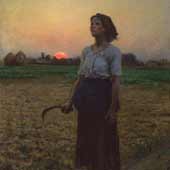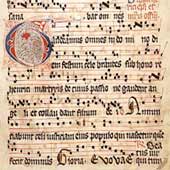Born into an Irish-Catholic family in Champaign-Urbana, Illinois, Mary Ann was exposed at an early age to the beauty of Gregorian chant and 16th-Century polyphony, and has, to this day, found the melodic beauty of chant and the contrapuntal works of the Renaissance informing her musical style. Her personal connection to and understanding of the genocide (The Great Famine) in Ireland created a need to compose many works that reveal human suffering on both a personal and universal scale. It is no accident that two of her latest works, Cantata for the Children of Terezin and Aceldama are based on subjects that are difficult to face: the Holocaust and the “Dark Night of the Soul.”
Mary Ann’s compositions also reflect the prairie’s changing skies and seasons, the beauty of the cycles of life, and celebrate the serene dignity of the Midwest that she experienced as a child. Her goal as a composer is to write music that expresses a wide range of human emotion – joy, loneliness, humor, love and longing.



